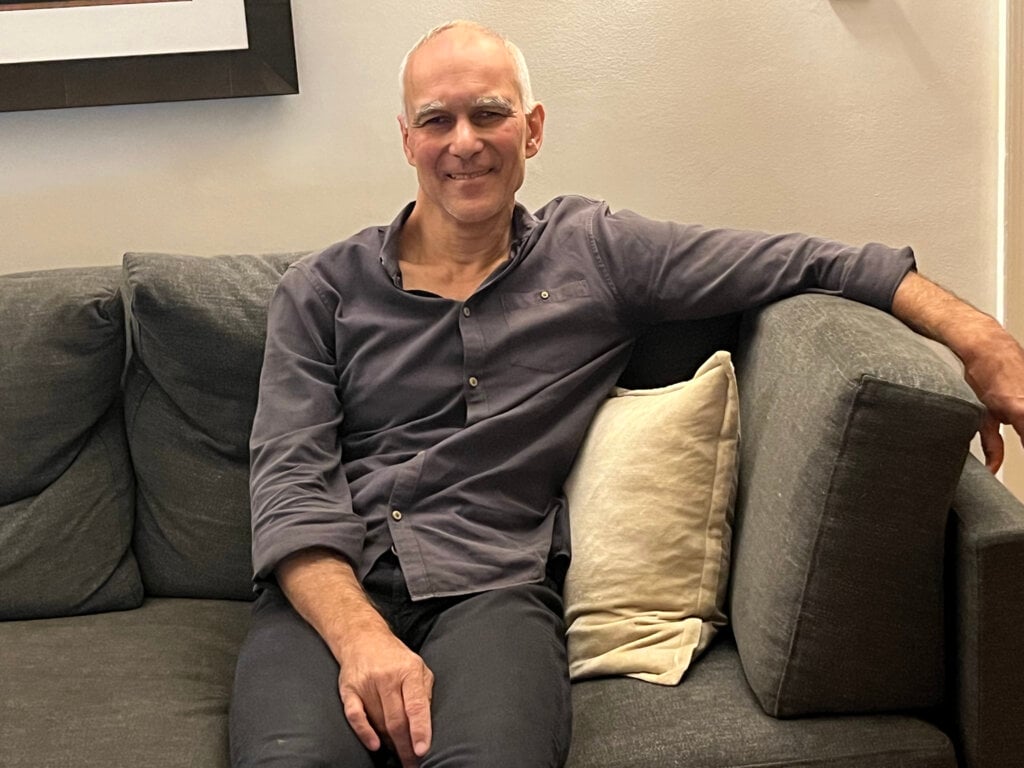Moungi Bawendi
Interview
Interview, December 2023
Interview with the 2023 Nobel Prize laureate in chemistry Moungi Bawendi on 6 December 2023 during the Nobel Week in Stockholm, Sweden.
Moungi Bawendi answers the following questions (the links below lead to clip on YouTube):
0:00 – Where does your passion for science come from?
1:35 – When did you decide science was the path for you?
2:49 – What do you enjoy about science?
6:06 – How do you cope with failure?
8:01 – Do you have any other examples of failures?
11:59 – How important is teamwork in science?
13:20 – Have you had any scientific mentors?
14:36 – What skills did your mentors teach you?
15:10 – What piece of advice do you have for young scientists?
17:09 – How has your international background influenced you?
19:47 – What advice do you have for those that feel like outsiders in science?
20:37 – Do you think diversity in science is important?
First reactions. Telephone interview, October 2023
“I’m supposed to teach at 9 this morning”
“I’m supposed to teach at 9 this morning,” say Moungi G. Bawendi in this call recorded in the early morning, just after the news of his 2023 Nobel Prize in Chemistry had reached him, “and I’m not sure what’s going to happen!” Bawendi tells the Nobel Prize’s Adam Smith how he received the call, speaks about his co-laureate and mentor Louis E. Brus, and discusses what he tries to teach his students.
Interview transcript
Moungi Bawendi: Hello?
Adam Smith: Hello, congratulations the award of the prize!
MB: Thank you, thank you.
AS: Did the news wake you this morning?
MB: Absolutely, I was sound asleep!
AS: [laughs] A nice way to be woken up.
MB: Definitely! Unexpected and very nice.
AS: What was your first action on hearing that you’ve been awarded?
MB: Yes, well I wasn’t sure it was true, and I was trying to wake up. And my wife was telling me “What’s going on, what’s going on?” And then I realised it’s true, and so I tried to figure out, you know, clear my thoughts, and yea, it’s quite an honour and quite a surprise.
AS: Of course, and one of your co-laureates was of course your post-doc supervisor, Louis Brus.
MB: Absolutely yes, Lou Brus, a giant in the field, yes.
AS: What was it like working together?
MB: He is an amazing mentor, he is a true scholar, he’s dedicated to science. I learned so much from him, really, he moulded me as a scientist. You know, I try to emulate his style of mentorship with my own students.
AS: And what is that style? What do you do?
MB: You know, you basically, you guide the students, you let them explore, and you provide feedback, but you have to teach them to become scientists through, gentle guidance.
AS: Discover what’s best about themselves I suppose is the key.
MB: Exactly, yes.
AS: It was thirty years ago that you perfected the synthesis of colloidal quantum nanoparticles, did you imagine then that that would be the kind of route for the rest of your career, up till now, that this would blossom so?
MB: No, absolutely not. It was with my students, Chris Murray and David Norris, that I did this at MIT when I first started out as an assistant professor. It was basically my first work there; it was built on work that I had started at Bell Labs with Brus. And at the time it was really to understand the physics of the material, we needed a really good samples to understand the physics, but I had no idea this would become what it is today. Over the years, you know, many of us in the field kept thinking, “When is this going to end?” But the field just keeps on giving, and it’s been really amazing to see that, the community is so large today, who knew it would be like that.
AS: There’s so much to be excited about in it, is there anything in particular that pops into your mind now, that you’d say was the most exciting thing at this moment.
MB: For me? No, it’s still a blur.
AS: [laughs] No, I meant in the field, rather than in the day.
MB: Oh, I mean, you know every few years something really exciting – when I go to conferences and I hear people talk about their work, I’m always amazed at the quality and new things that are coming out, so it’s an ongoing excitement I would say,
AS: I know it must be difficult to put into words what is going through your mind now about the day as it’s unfolding, but how do you see the prospect of today and the days to come as a new Nobel laureate?
MB: I think it’s going to be very chaotic today, and I’m supposed to teach at 9 this morning and I’m not sure what’s going to happen. I’m sure MIT has some events that they are going to plan and so I’m just going to let it ride.
AS: sounds very wise, and I think you’re going to have some very happy students at nine o’clock.
MB: Oh, I’m sure I will!
AS: Exciting for them, how lovely. Thank you very much indeed, once again congratulations.
MB: thank you so much.
AS: Bye bye.
MB: Bye bye.

Did you find any typos in this text? We would appreciate your assistance in identifying any errors and to let us know. Thank you for taking the time to report the errors by sending us an e-mail.
Nobel Prizes and laureates
Six prizes were awarded for achievements that have conferred the greatest benefit to humankind. The 12 laureates' work and discoveries range from proteins' structures and machine learning to fighting for a world free of nuclear weapons.
See them all presented here.
